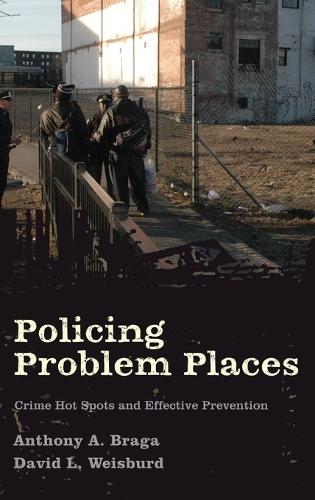
Policing Problem Places: Crime Hot Spots and Effective Prevention
Series: Studies in Crime and Public Policy
Both those who study crime and those who fight it agree that crime is not spread evenly across city landscapes. Rather, clusters of crime--a few "hot spots"--host a vastly disproportionate amount of criminal activity. Even within the most crime-ridden neighborhoods, crime concentrates at a few locations while other areas remain relatively crime-free. So if police focus their limited resources at t
NaN
VOLUME
English
Hardback

Both those who study crime and those who fight it agree that crime is not spread evenly across city landscapes. Rather, clusters of crime--a few "hot spots"--host a vastly disproportionate amount of criminal activity. Even within the most crime-ridden neighborhoods, crime concentrates at a few locations while other areas remain relatively crime-free. So if police focus their limited resources at these problem places-a practice known as hot spots policing-they will be better positioned to lower citywide crime rates, and do it more efficiently. In Policing Problem Places, Anthony A. Braga and David L. Weisburd demonstrate that hot spots policing is a powerful and cost-effective approach to crime prevention. While putting police officers where crime happens most is an old and well-established idea, in practice it is often avoided or not properly implemented. Braga and Weisburd draw on rigorous scientific evidence to show how police officers should use problem-oriented policing and situational crime-prevention techniques to address the place dynamics, situations, and characteristics that cause a spot to be "hot." But the benefits of hot spots policing do not end with conserving public dollars and police resources. Illustrating how policing problem places can benefit police-community relations, especially in minority neighborhoods where residents have long suffered from high crime and poor police service, Braga and Weisburd show how police can make efforts to develop positive and collaborative relationships with residents andavoid the indiscriminant enforcement tactics that undermine the legitimacy of the police. A vital resource for police departments everywhere, Policing Problem Places offers a blueprint for rethinking what police should do and how they should do it.About the Author: Anthony A. Braga is a Professor in the School of Criminal Justice at Rutgers University and a Senior Research Fellow in the Program in Criminal Justice Policy and Management at Harvard University. David L. Weisburd is Walter E. Meyer Chair of Law and Criminal Justice at Hebrew University Law School and Distinguished Professor in the Criminology, Law and Society Department at George Mason University.
Price Comparison [India]
In This Series
Bestseller Manga
Trending NEWS




















